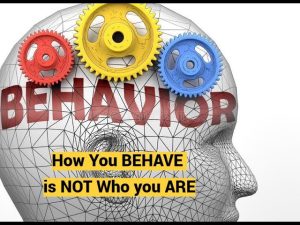Effects of Narcissistic Abuse on Perception and Reality
Introduction to Narcissistic Abuse and Its Effects
- The speaker introduces the theme of how narcissistic abuse changes the victim’s perception of reality and self, warning about common mistakes in dealing with it. [00:00]
- The destruction caused by narcissists is not just internal or emotional but also cognitive and moral, deeply affecting the victim’s identity and worldview. [00:12]
Destruction of Cognitive and Moral Frameworks
- Narcissistic abuse challenges and destroys hidden and overt assumptions about the world, leading to a deep “moral injury.” [00:35]
- Two key cognitive instruments affected are:
- Theory of Mind – the ability to understand others’ thoughts and emotions, which evolves from reflexive empathy in early childhood to complex mentalizing. [00:50]
- Internal Working Model (IWM) – theories about how relationships work, originally proposed by Bowlby. [02:50]
Regression and Infantilization by the Narcissist
- Narcissists intentionally destroy the victim’s theory of mind and internal working models to regress and infantilize the victim, leaving them unable to make sense of people or the world. This induces an epistemic crisis—an inability to understand knowledge and belief systems. [03:30]
The 10 False Beliefs Imposed by the Narcissist
- The narcissist forces the victim to believe 10 falsehoods that foster distrust, isolation, and fear:
- People are irrational, self-interested, exploitive, and often evil, creating a cult-like mentality of “us versus them.” [04:05]
- Justice, order, and structure are rare; chaos and uncertainty dominate reality, rendering people and reality untrustworthy. [05:00]
- The world is hostile or indifferent and ultimately meaningless, causing epistemic, doxastic (belief), and axiological (value) crises that disrupt trust in perception, beliefs, and values. [05:20]
- No good deed goes unpunished; success depends more on contacts or luck rather than effort or sincerity. [07:00]
Loss of Meaning and Reference to Viktor Frankl
- The narcissist strips victims of the ability to create or hold onto meaning, an essential psychological need crucial for survival. Meaninglessness leads to psychological death faster than deprivation of water, food, or sex. [07:15]
- The example of Viktor Frankl’s survival in Auschwitz is given, emphasizing how the invention of meaning sustains life even in extreme situations. [07:40]
- The loss of meaning promotes despair and purposelessness, which victims sometimes try to counterbalance through religion or other belief systems, though these responses vary. [09:10]
Note: The timestamps correspond to approximate moments in the recording/transcript where these topics were covered.






